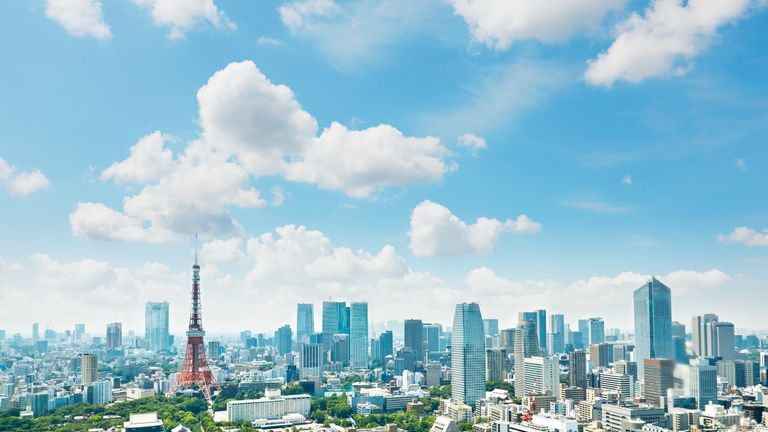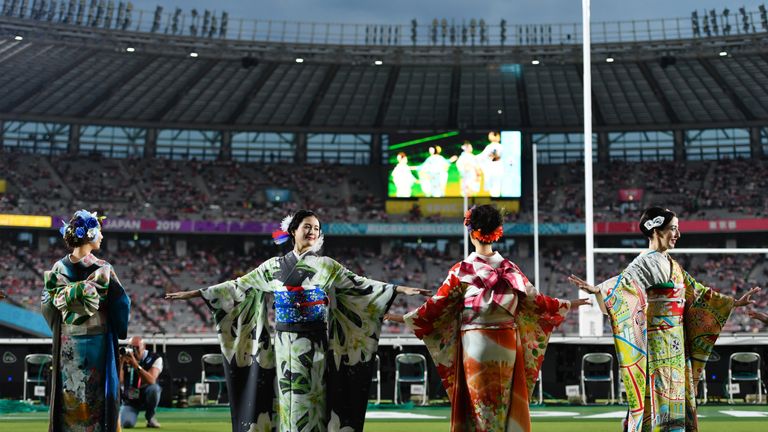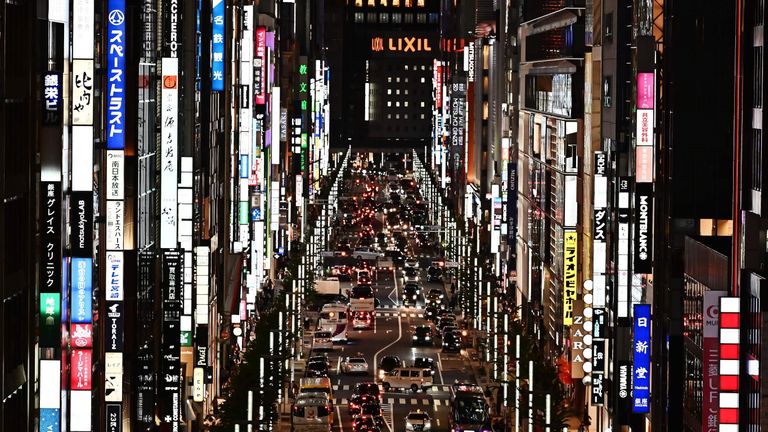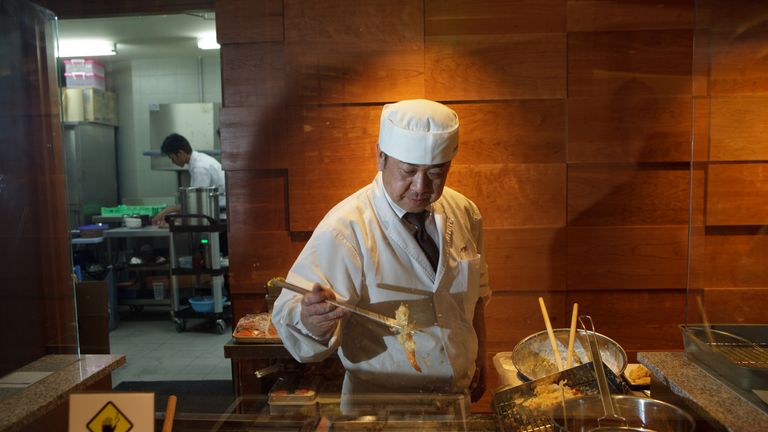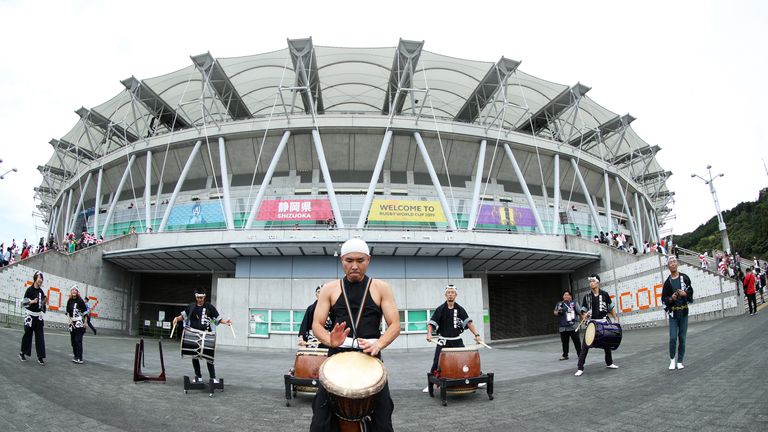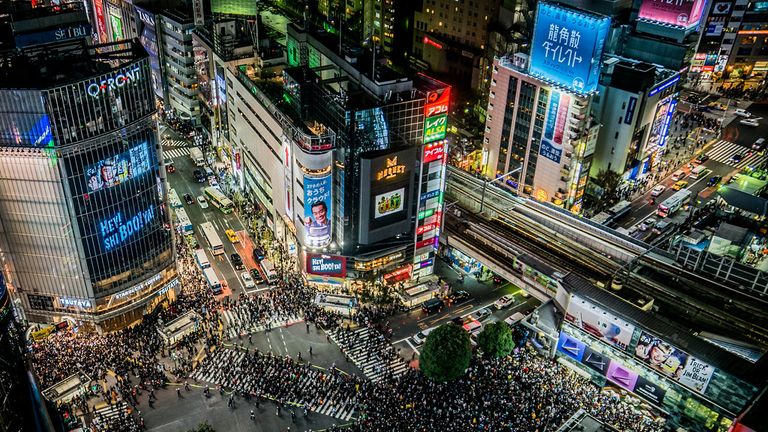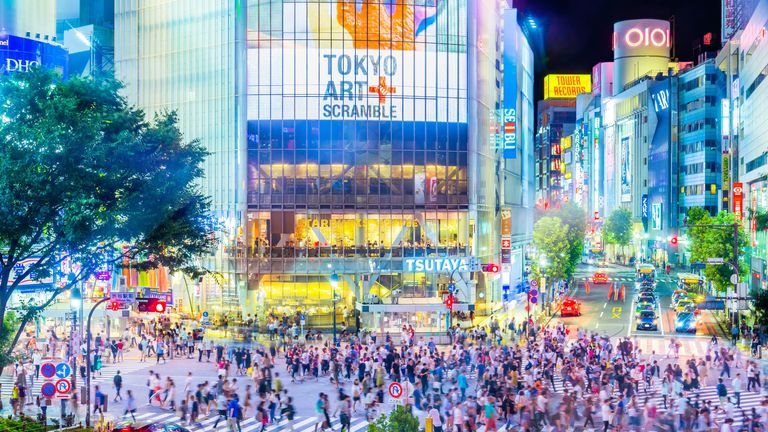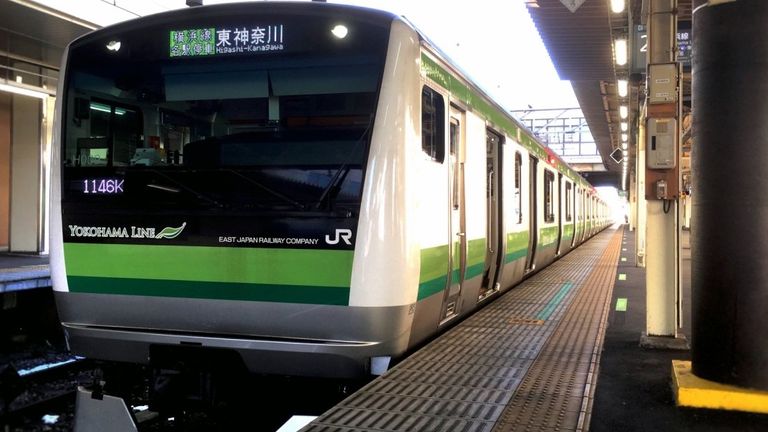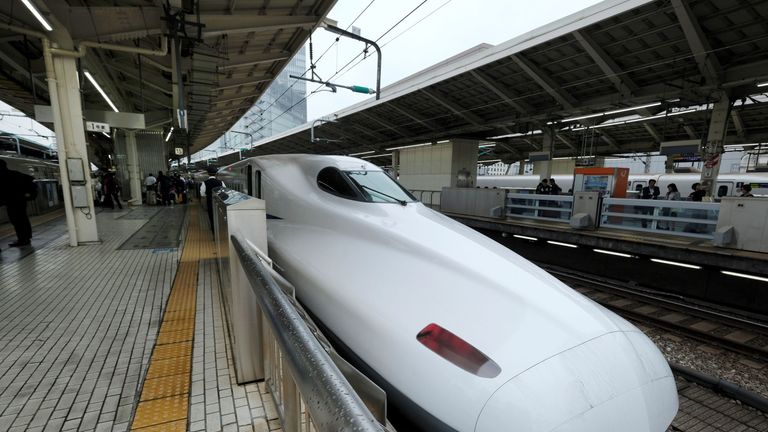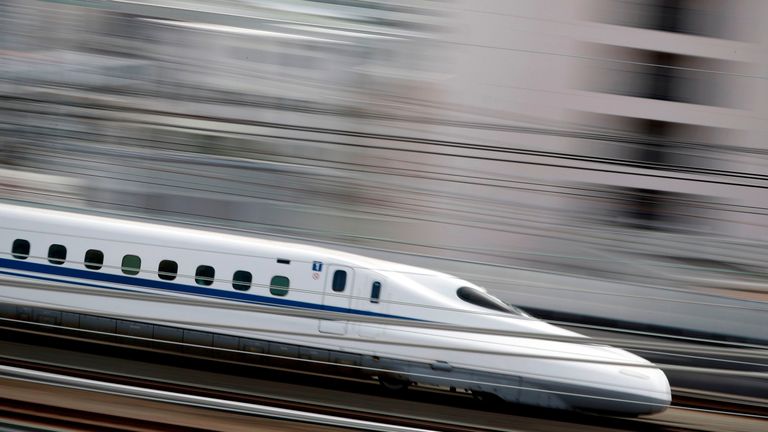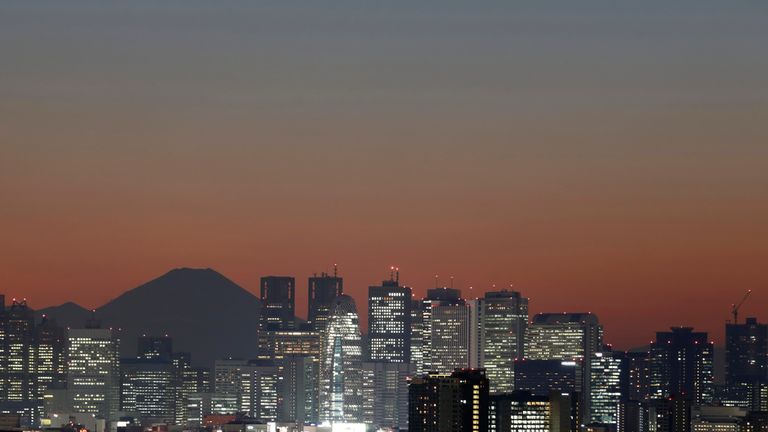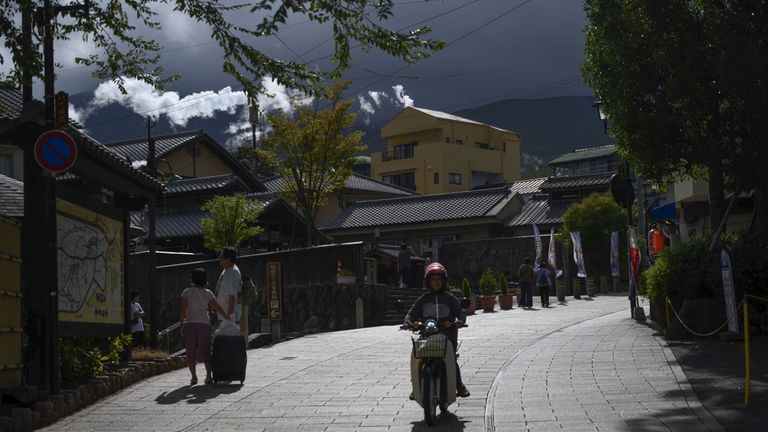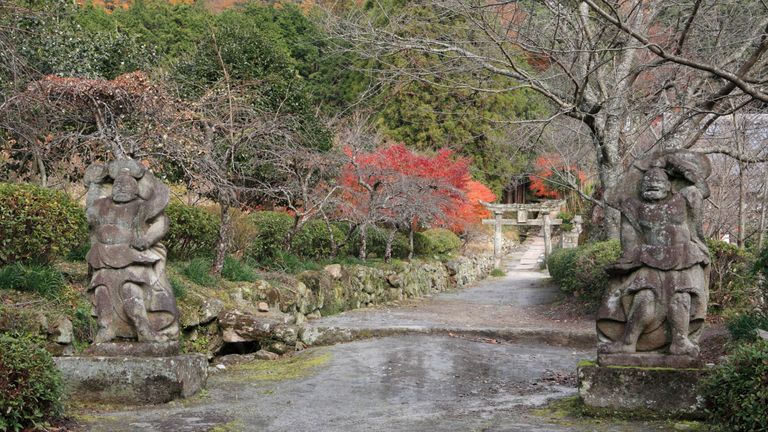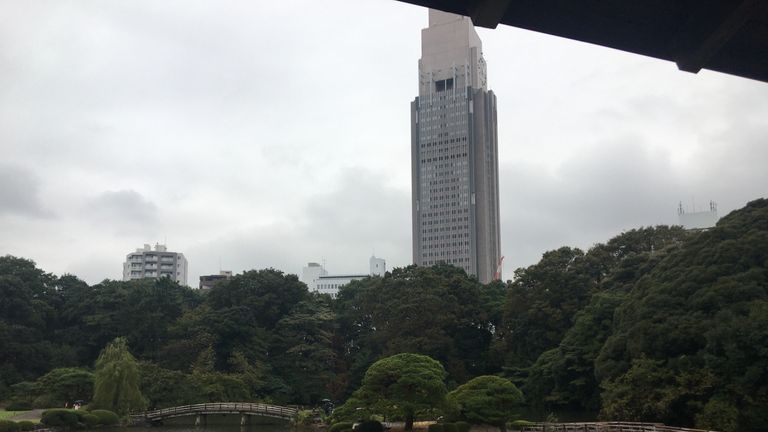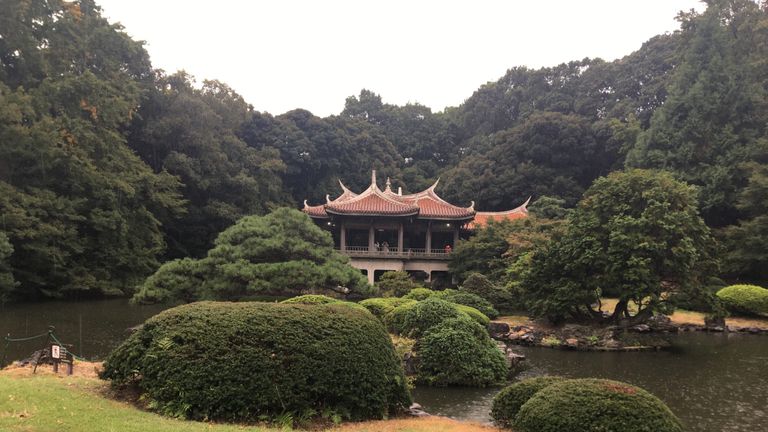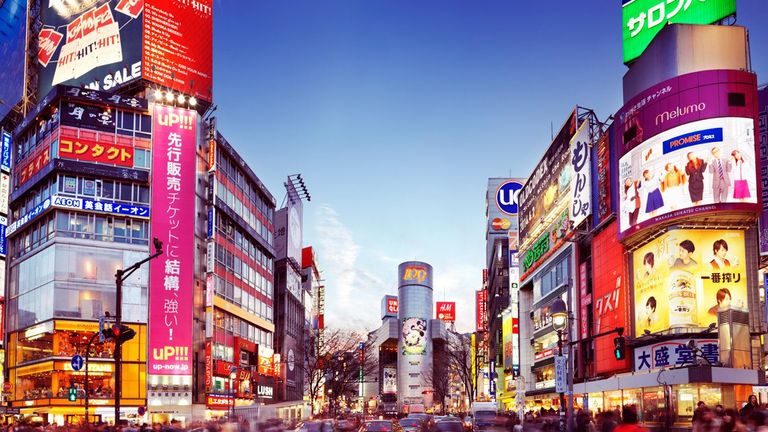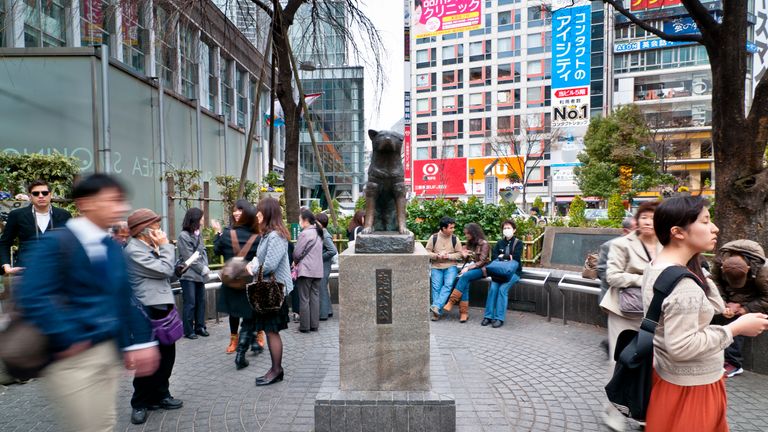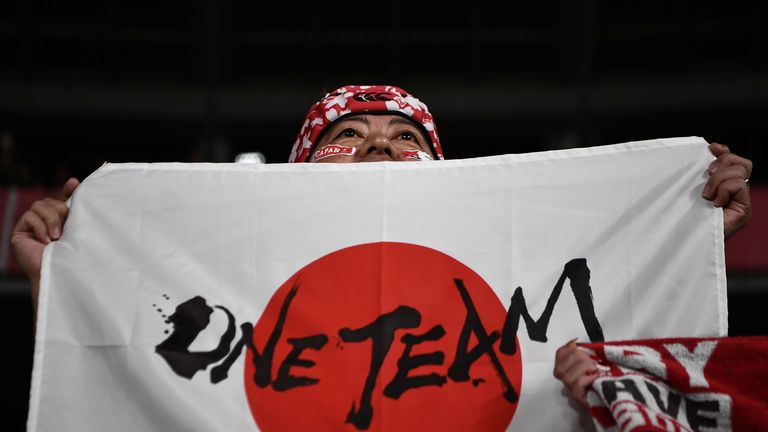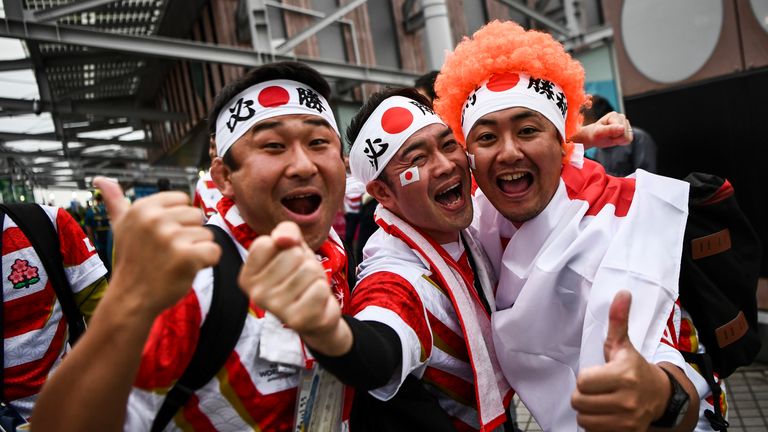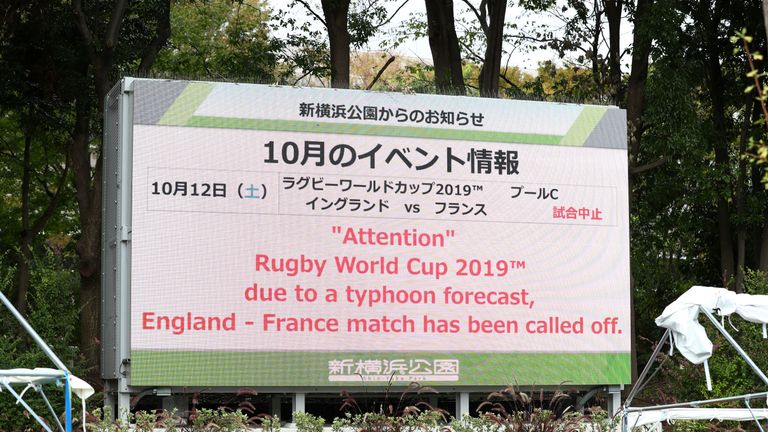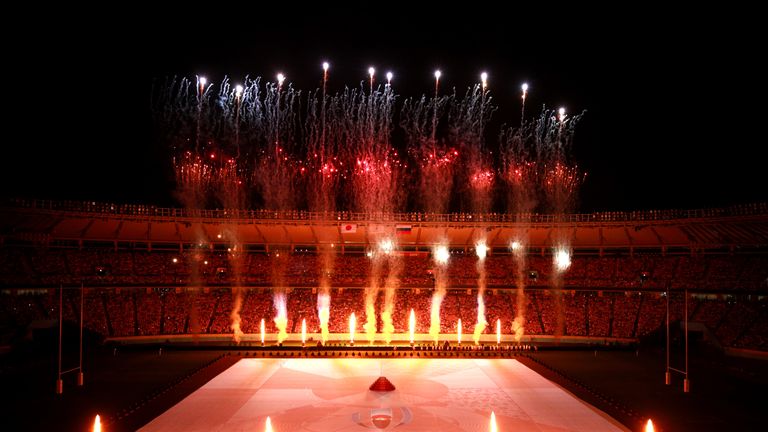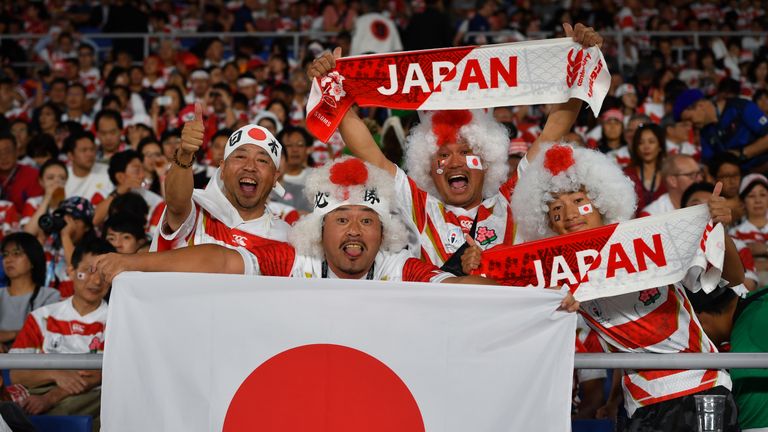Japan's 2019 Rugby World Cup: A unique sporting experience
Rugby World Cup's first-ever tournament in Asia an unqualified success
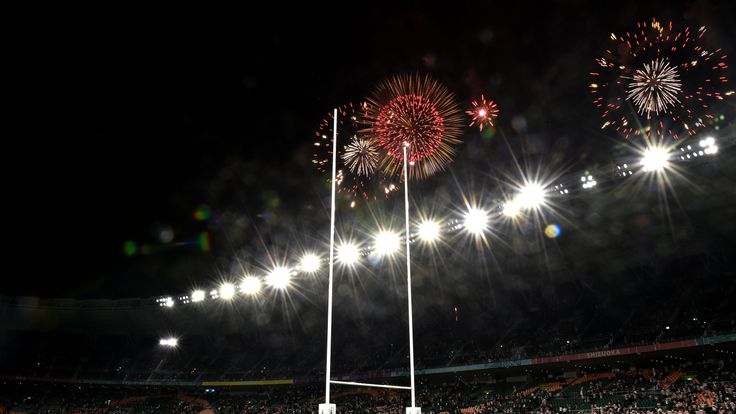
Tuesday 5 November 2019 20:23, UK
As the dust settles on South Africa's Rugby World Cup 2019 success, thousands leave Japanese shores - but what an experience it's been...
Japan. The birthplace of sushi and sumo wrestling, samurais, Pokemon and Mount Fuji.
Of anime and origami. The Shinkansen bullet train and unrivalled technology.
It's a nation of monster zebra crossings; of bowing - no handshakes; of white-gloved taxi drivers whose cars have self-opening doors; temperature dials for sinks in public toilets.
Flawless transport systems, heated toilet seats - with space-age manuals - and over 5m vending machines: one to every 22 people.
A population of immensely and continually hospitable, smiley and helpful individuals. Laced with a gentle nature.
A place of seemingly infinite inventiveness, quirks and gimmicks. Above all, Japan is home to a unique culture. One that is utterly inimitable.
Arrival into this exceptional country has a strong degree of the sensory overload.
From the endless bustle of central Tokyo, to the bright, flashing neon lights of Ginza, the interminable din of Pachinko arcade machines, to the eki-melodies which precede each Tokyo train before departure.
In a list of the 51 busiest train stations on the planet, all but six are located in Japan and, amazingly, the top 23 are all in the Land of the Rising Sun.
'Almost like a different world'
There's unpredictable and volatile weather. At once stiflingly warm with unsuspecting and deceptive humidity, the next encompassed with torrential, monsoon-esque rain, bouncing off the ground like marbles.
Scents of a diverse and sundry cuisine fill the streets, radiating from zingy teriyaki chicken, fragrant tempura, and the butter-like, melted quality of Wagyu and Kobe beef. The cows used to make such a delicacy said to be given alcohol, massaged daily, and played classical music.
It's oddities like this that make Japan such a fabulously unusual venture. A vastly and entirely different phenomenon to the West. Almost like a different world.
Even the text which fills books - Kanji - is read up and down, and not left to right. Things could not be more dissimilar here.
The matchday experience itself is unique. From the precisely segmented media meals, to the Kabuki shout, pre-match Hyoshigi and Taiko drumming.
If one place is quintessentially Tokyo, it is the Shibuya crossing in the west of the city.
On the cusp of the second busiest railway station on the globe, five pedestrian crossings in alternate directions converge beneath three bright, behemoth screens functioning 24 hours a day, culminating in an avalanche of transient people.
An experience of undoubted discombobulation, it's a rush nonetheless as the scrambled mayhem can see 3000 people cross this intersection at any one time. It's used by half a million people a day.
If New York is the city which never sleeps, Tokyo too is a city which never stops. Whether 5am or 11pm, traffic fills the roads and hordes of people the fast-paced, chaotic streets.
Order and obedience
For all the movement, Japan is famously clean, however. Almost entirely devoid of litter.
The paths habitually verge on spotless. An army of road sweepers on hand to clear up the nearest cigarette bud within seconds. Cleaners attack buildings with bleach at nearly 11pm at night.
The charming paradox to all this is that, for a country of such cleanliness, public bins are devilishly difficult to find. And this is because Japanese people have been brought up to take their rubbish home with them.
Amid all the pleasantries this country possesses, at heart it is a place of order, timings and structured obedience.
Demarked lines denote where to stand and queue before boarding public transport, timings of which are almost always to the second.
In fact, train drivers have issued widespread apologies in recent years due to trains arriving 25 seconds late, or in one striking case, a train which departed 20 seconds too early - satire it was not.
JR Central, Japan's most prominent railway company, state the annual average delay of trains in the country is less than one minute - and this, remarkably, includes interruptions due to natural disasters such as typhoons and earthquakes - regular occurrences in the Far East, as World Cup organisers know only too well.
The Shinkansen continues to be a marvel of the world. Operating since 1964 and at speeds of 200 mph, the network has grown to cover a colossal 1,717 miles of lines across Japan.
In its five decades of service, bullet trains have ferried 10 billion passengers - 424,000 a day, and now 342 daily departures. The number of fatalities in that time? An astonishing zero.
While talking on phones is somewhat advised against on British trains, it is an explicit instruction in Japan - signs inform of the command not to speak on mobiles, and to switch them to silent.
Hailing taxi drivers is an alien concept here. Specific stands the only acceptable places at which to board.
Such a stringent obsession with directives can, unwittingly, slow travel down for the individual in a nation so time-conscious. It's a frustration at times, but the kindness of the people can't but entice you to conform.
Fascinating contrasts
Explore outside the metropolis of Tokyo, and the contrasts are fascinating. Japan is a thoroughly multi-faceted country, an eclectic mix of variance.
Oita, host of England and Wales' quarter-final victories over Australia and France, is a setting of tight roads, sea breezes, wild drivers and, most notably, silence at night but for the clicks and scatterings of nature.
The area around Stadium Yokohama, host of both semi-finals and the final, is far less flashy and ostentatious than the capital. An expanse of herbaceous borders, a mix of contemporary Japanese houses and Kirizuma-style roofs. A far more suburban feel.
Kamata - a Tokyo district - is a daily sea of bicycles and cyclists resembling something out of Amsterdam.
At Shinjuku's Gyoen National Garden, the only sounds to be heard are the chirps of birds, the rustle and sway of leaves, and drops of rain on the tops of umbrellas.
Skyscrapers replaced by a dense enterprise of 100 ft trees, roads swapped for traditional footbridges, subway stations for Rakuutei tea houses.
'A poignant display of loyalty'
Central to Japanese culture are the concepts of respect, honour and pride.
And it's clearly noticeable. On a Yokohama train, a child - no older than four - removed his velcroed shoes before putting his feet on the seats, and did so without instruction.
Adults pass intermittently throughout the day wearing face masks reminiscent of a doctor or builder. This is not out of some fear for air pollution though, it is to protect the rest of the public from the strain of cold or flu they are dealing with.
There is almost zero crime in Japan. Indeed, it is not uncommon to witness locals step into a restaurant, place down their laptop or valuables, and go elsewhere, so assured are they of the safety of their possessions - a ludicrous form of behaviour in most other places.
Over the last two months, there have been countless instances of World Cup fans misplacing wallets, phones or passports, only for them to be returned within hours.
Petty theft and pickpocketing is near non-existent, while the homicide rate (0.2 per 100,000 people) for a country of this size - 170m - is the lowest on earth.
Respect and honour is paramount, and no more is this characterised than at the Hachiko Statue - a bronzed mould to celebrate the timeless tale of an Akita-breed dog who returned to Shibuya Station every day for almost 10 years awaiting the arrival of his deceased owner.
Such a poignant display of loyalty continues to strike a chord with the Japanese nation, and Hachiko is held up as a symbol to live by.
In May 1994, 59 years after the dog's death, a recording of his bark was pieced together. Millions consequently tuned in on radio to hear the bark of Hachiko - surely the most revered dog in history.
Today, the Hachiko statue represents a daily meeting point of some 100,000 people, with queues to take pictures quotidian too.
In fact, the memorial became such a popular place of meeting, a machine was installed to punch in timed arrivals. Only in Japan.
Joy, grief and gratitude
An intensely prideful nation, Japan is sport-mad: football, baseball, tennis, sumo. And when the Brave Blossoms took to the pitch during this tournament, joy was unconfined.
In Oita, Japanese sports journalists were amongst the most reserved there was. Yet when Japan kicked off against South Africa in Tokyo on October 20, the same journalists were wailing and screaming at television screens.
The transformation was fulsome, and their passion infectious.
For many, this will forever be the World Cup of three lost matches - cancelled due to the threats and effect of Typhoon Hagibis - and, nationally, at least 80 lost lives.
And while the cancellations did cast an indubitable shadow over the tournament's schedule, reproach should not be positioned at the feet of the Japanese authorities and their public.
World Rugby knew of plans to host the World Cup in Japan for 10 years. The decision to host in typhoon season and the unprecedented act to call off matches lies with them, and their seemingly futile or absent 'contingency plans'.
In hosting terms, Japan could not have done it better.
Their tagline for the tournament had been: Once in a lifetime. But this World Cup was such a success, it will almost certainly be brought back here in time.
The Olympics takes place in Tokyo just 10 months from now - a sporting carnival sure to be extraordinary.
Arigato Gozaimasu - literally translated as 'thank you' - is heard unremittingly around the country every day. By the end of the Rugby World Cup, it was the tourists who couldn't utter it enough.
